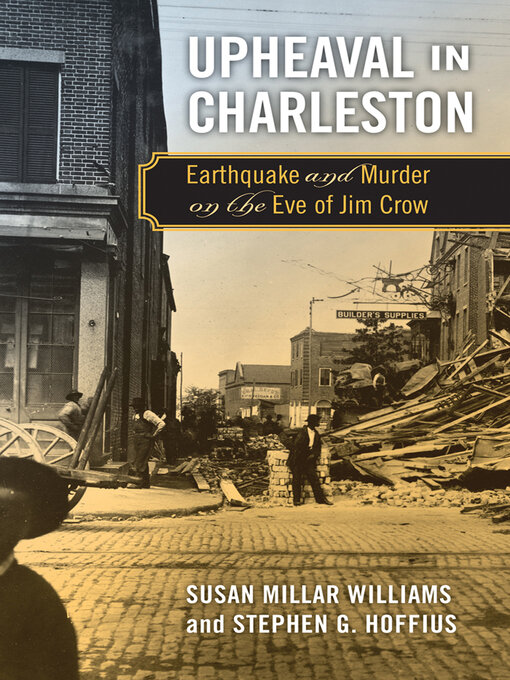History and suspense combine in this scholarly account of a city recovering from the Civil War and rocked by an earthquake and murder.
On August 31, 1886, a massive earthquake centered near Charleston, South Carolina, sent shock waves as far north as Maine, down into Florida, and west to the Mississippi River. When the dust settled, residents of the old port city were devastated by the death and destruction.
Upheaval in Charleston is a gripping account of natural disaster and turbulent social change in a city known as the cradle of secession. Weaving together the emotionally charged stories of Confederate veterans and former slaves, Susan Millar Williams and Stephen G. Hoffius portray a South where whites and blacks struggled to determine how to coexist a generation after the end of the Civil War.
This is also the story of Francis Warrington Dawson, a British expatriate drawn to the South by the romance of the Confederacy. As editor of Charleston’s News and Courier, Dawson walked a lonely, dangerous path, risking his life and reputation to find common ground between the races. Hailed as a hero in the aftermath of the earthquake, Dawson was denounced by white supremacists and murdered less than three years after the disaster. His killer was acquitted after a sensational trial that unmasked Charleston’s underworld of decadence and corruption.
Combining careful research with suspenseful storytelling, Upheaval in Charleston offers a vivid portrait of a volatile time and an anguished place.
“Recommended for those who appreciate books on natural disasters, American history, and the secret goings-on of the political world.”—Library Journal
- Featured Magazines
- Let's Get Cooking!
- News, Politics, and Business
- Lifestyle Magazines
- Popular Magazines
- All Magazines
- See all magazines collections


